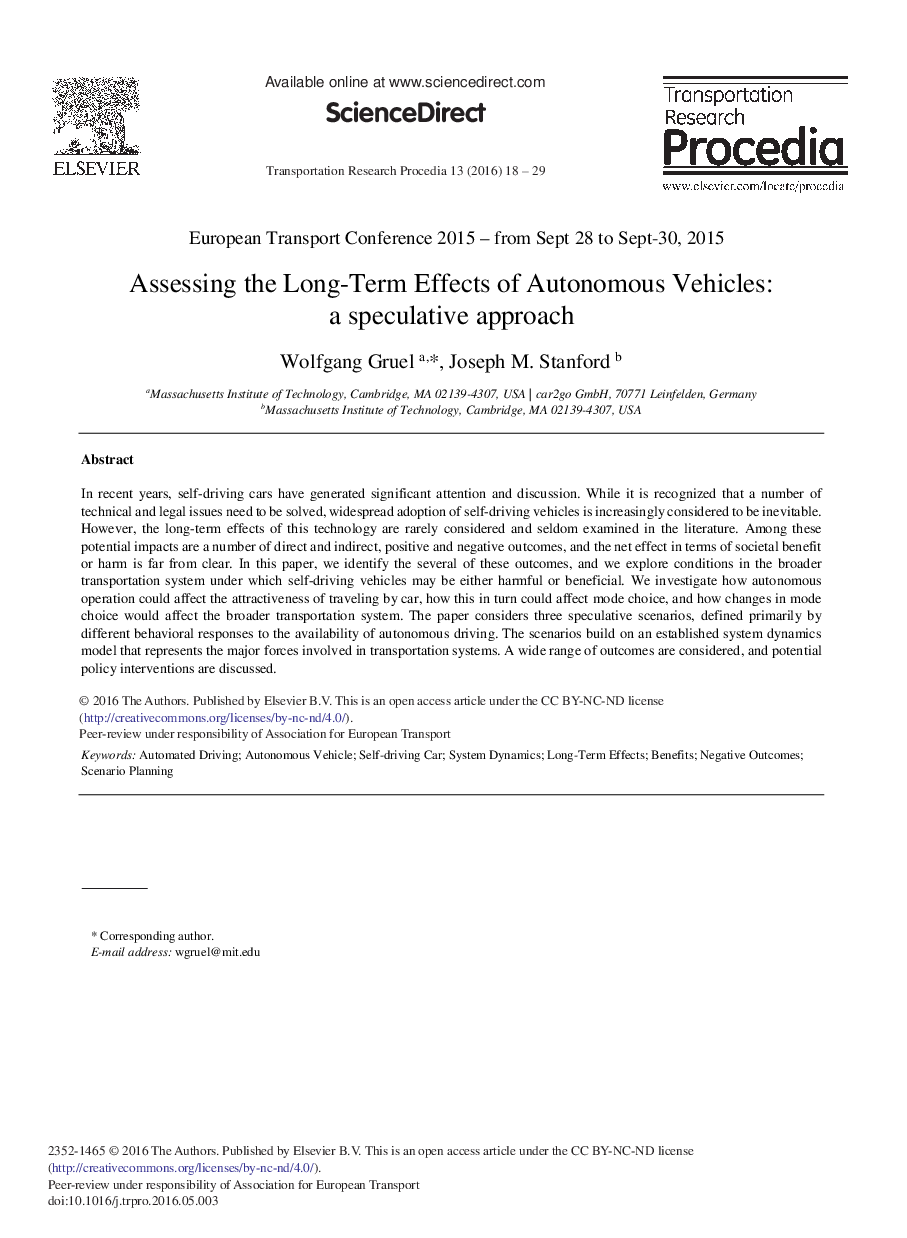| Article ID | Journal | Published Year | Pages | File Type |
|---|---|---|---|---|
| 1106163 | Transportation Research Procedia | 2016 | 12 Pages |
In recent years, self-driving cars have generated significant attention and discussion. While it is recognized that a number of technical and legal issues need to be solved, widespread adoption of self-driving vehicles is increasingly considered to be inevitable. However, the long-term effects of this technology are rarely considered and seldom examined in the literature. Among these potential impacts are a number of direct and indirect, positive and negative outcomes, and the net effect in terms of societal benefit or harm is far from clear. In this paper, we identify the several of these outcomes, and we explore conditions in the broader transportation system under which self-driving vehicles may be either harmful or beneficial. We investigate how autonomous operation could affect the attractiveness of traveling by car, how this in turn could affect mode choice, and how changes in mode choice would affect the broader transportation system. The paper considers three speculative scenarios, defined primarily by different behavioral responses to the availability of autonomous driving. The scenarios build on an established system dynamics model that represents the major forces involved in transportation systems. A wide range of outcomes are considered, and potential policy interventions are discussed.
